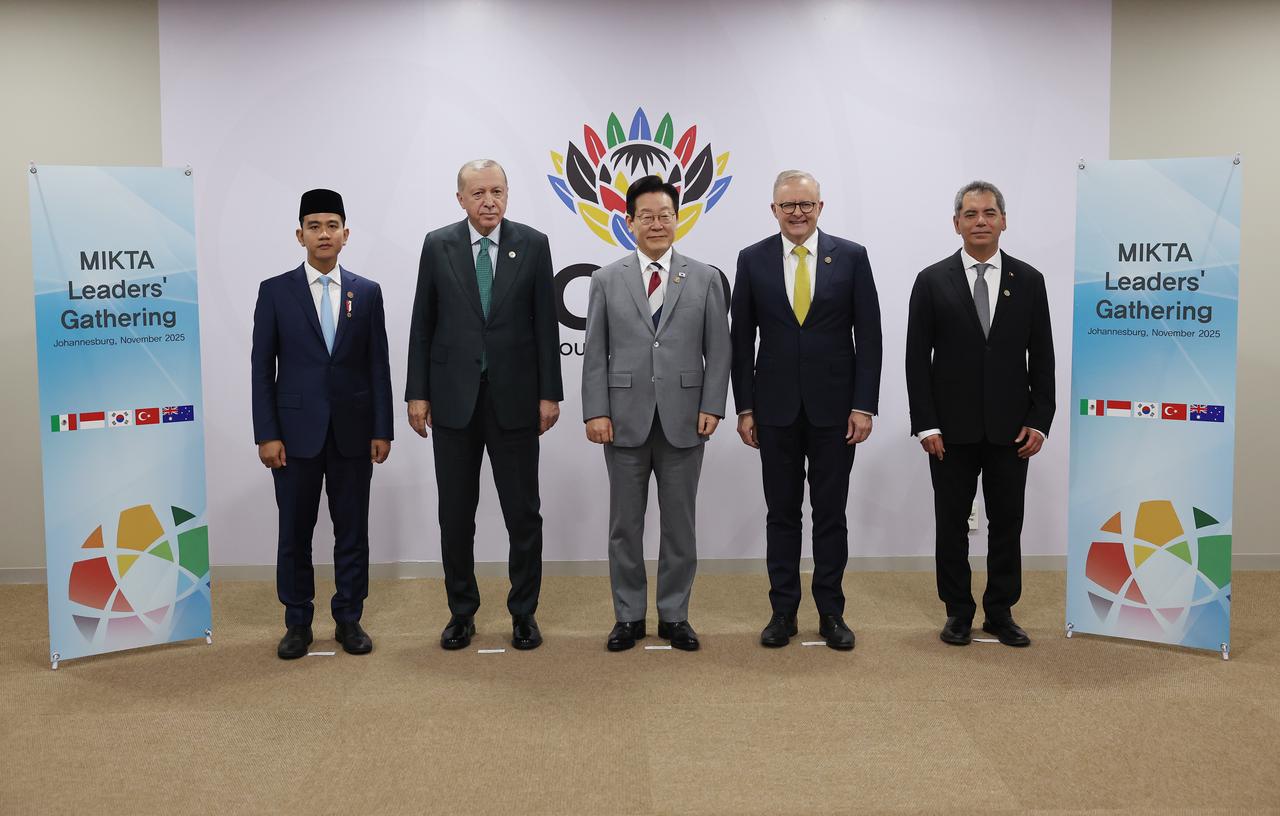
President Recep Tayyip Erdogan conducted a series of diplomatic meetings on the sidelines of the G20 Leaders' Summit in Johannesburg, South Africa, this weekend, holding talks with leaders from Canada, Ethiopia, and Angola as the two-day gathering addressed global economic and development challenges.
Erdogan met with Canadian Prime Minister Mark Carney and Ethiopian Prime Minister Abiy Ahmed Ali on Saturday, according to the Turkish Presidency's website. The Turkish leader also held discussions with Angolan President Joao Lourenco at the Johannesburg Expo Center, where the summit is taking place.
The bilateral meeting with Ethiopia's premier was closed to the press. Turkish Foreign Minister Hakan Fidan, Presidential Communications Director Burhanettin Duran, Chief Foreign Policy and Security Adviser Akif Cagatay Kilic, and other senior officials accompanied Erdogan throughout his diplomatic engagements. AK Party Deputy Chairman and Party Spokesperson Omer Celik attended the Angola meeting.

Erdogan also participated in a meeting with leaders of MIKTA, a cross-regional consultative platform that brings together Türkiye, Mexico, Indonesia, South Korea, and Australia. The informal grouping, established in 2013, serves as a consultation mechanism for middle-power nations to coordinate positions on global governance issues.
In a speech to the summit's leaders session, Sierra Leone President Julius Maada Bio, who currently chairs the Economic Community of West African States, urged G20 nations to prioritize African development and reform international financial structures.
Bio emphasized that trade represents more than just cross-border commerce for Africa's 1.4 billion people, calling it an opportunity to generate employment and prosperity across the continent. He highlighted his region's commitment to increasing intra-African trade through effective implementation of the African Continental Free Trade Area, describing it as a framework that empowers small businesses, connects landlocked communities, and creates regional value chains.
"We call on the G20 to reform global trade rules to ensure fair access for African exporters, facilitate trade, invest in digital corridors and green logistics, and support full implementation of free trade agreements to ensure effective participation of women and young entrepreneurs," Bio said.
The Sierra Leone president, who currently heads ECOWAS, pressed for scaled-up climate financing commitments, noting that Africa contributes less than 4 percent of global emissions yet bears the highest climate costs. He called for fulfillment of the $100 billion climate damage finance commitment and accelerated access to the Loss and Damage Fund.
Bio warned that more than 20 African countries face high debt distress risk not due to irresponsible borrowing but because they are forced to borrow within a structurally unjust system. He said borrowing and debt service costs remain prohibitively high for many African nations, diverting resources from critical sectors including health, education, and infrastructure.
"There is a need for a new debt-climate-development consensus that links debt to resilience," Bio said, urging G20 countries to adopt a multifaceted approach viewing fiscal space, financial innovation, and institutional capacity as foundations of a new global economic architecture.
Bio concluded by calling on the G20 to address rising poverty, economic inequality, and injustice that fuel global security problems. "The G20 must work to build a more peaceful world where prosperity and progress for all is a global goal," he said.